Filter by
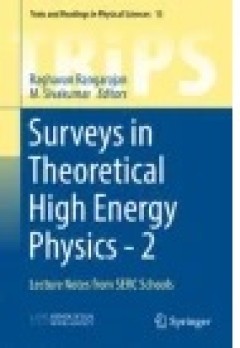
Surveys in Theoretical High Energy Physics - 2
The book presents pedagogical reviews of important topics on high energy physics to the students and researchers in particle physics. The book also discusses topics on the Quark–Gluon plasma, thermal field theory, perturbative quantum chromodynamics, anomalies and cosmology. Students of particle physics need to be well-equipped with basic understanding of many concepts underlying the standard…
- Edition
- -
- ISBN/ISSN
- 978-981-10-2591-4
- Collation
- XV, 295
- Series Title
- Texts and Readings in Physical Sciences
- Call Number
- -
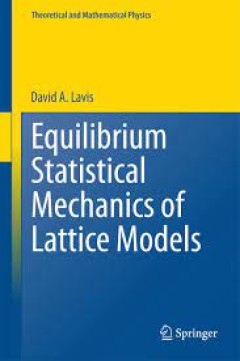
Equilibrium Statistical Mechanics of Lattice Models
Most interesting and difficult problems in equilibrium statistical mechanics concern models which exhibit phase transitions. For graduate students and more experienced researchers this book provides an invaluable reference source of approximate and exact solutions for a comprehensive range of such models. Part I contains background material on classical thermodynamics and statistical mechanics…
- Edition
- -
- ISBN/ISSN
- 978-94-017-9430-5
- Collation
- 101 b/w illustrations
- Series Title
- -
- Call Number
- -
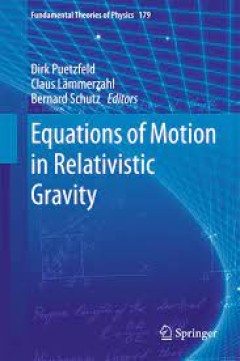
Equations of Motion in Relativistic Gravity
The present volume aims to be a comprehensive survey on the derivation of the equations of motion, both in General Relativity as well as in alternative gravity theories. The topics covered range from the description of test bodies, to self-gravitating (heavy) bodies, to current and future observations. Emphasis is put on the coverage of various approximation methods (e.g., multipolar, post-N…
- Edition
- -
- ISBN/ISSN
- 978-3-319-18335-0
- Collation
- 30 b/w illustrations, 59 illustrations in colour
- Series Title
- -
- Call Number
- -

Active Flow and Combustion Control 2014
The book reports on the latest theoretical and experimental advances in the field of active flow and combustion control. It covers new developments in actuator technology and sensing, in robust and optimal open- and closed-loop control, as well as in model reduction for control. It collects contributions presented during the third edition of the Active Flow and Combustion Control conference, he…
- Edition
- Ed. 1
- ISBN/ISSN
- 978-3-319-11967-0
- Collation
- IX, 416
- Series Title
- Notes on Numerical Fluid Mechanics and Multidisciplinary Design
- Call Number
- 530.15 ACT a
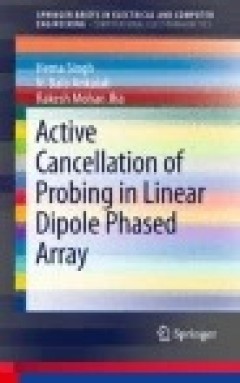
Active Cancellation of Probing in Linear Dipole Phased Array
In this book, a modified improved LMS algorithm is employed for weight adaptation of dipole array for the generation of beam pattern in multiple signal environments. In phased arrays, the generation of adapted pattern according to the signal scenario requires an efficient adaptive algorithm. The antenna array is expected to maintain sufficient gain towards each of the desired source while at th…
- Edition
- Ed. 1
- ISBN/ISSN
- 978-981-287-829-8
- Collation
- XXII, 58
- Series Title
- SpringerBriefs in Electrical and Computer Engineering
- Call Number
- 537.534 SIN a
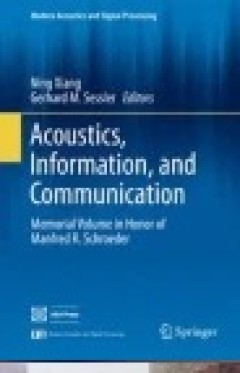
Acoustics, Information, and Communication: Memorial Volume in Honor of Manfre…
This book explores the life and scientific legacy of Manfred Schroeder through personal reflections, scientific essays and Schroeder’s own memoirs. Reflecting the wide range of Schroeder’s activities, the first part of the book contains thirteen articles written by his colleagues and former students. Topics discussed include his early, pioneering contributions to the understanding of statis…
- Edition
- Ed. 1
- ISBN/ISSN
- 978-3-319-05660-9
- Collation
- XVIII, 461
- Series Title
- Modern Acoustics and Signal Processing
- Call Number
- 620.2 ACO a
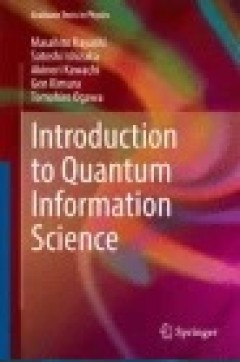
Introduction to Quantum Information Science
This book presents the basics of quantum information, e.g., foundation of quantum theory, quantum algorithms, quantum entanglement, quantum entropies, quantum coding, quantum error correction and quantum cryptography. The required knowledge is only elementary calculus and linear algebra. This way the book can be understood by undergraduate students. In order to study quantum information, one us…
- Edition
- -
- ISBN/ISSN
- 978-3-662-43502-1
- Collation
- -
- Series Title
- -
- Call Number
- -
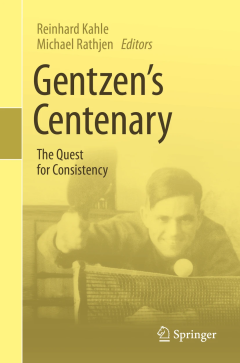
Gentzen's Centenary
Gerhard Gentzen has been described as logic’s lost genius, whom Gödel called a better logician than himself. This work comprises articles by leading proof theorists, attesting to Gentzen’s enduring legacy to mathematical logic and beyond. The contributions range from philosophical reflections and re-evaluations of Gentzen’s original consistency proofs to the most recent developments in p…
- Edition
- -
- ISBN/ISSN
- 978-3-319-10102-6
- Collation
- -
- Series Title
- -
- Call Number
- 510.1 GEN
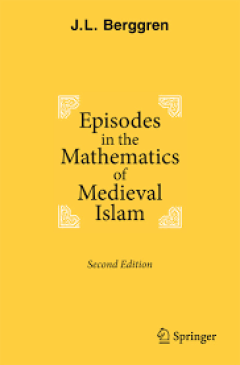
Episodes in the Mathematics of Medieval Islam
This book presents an account of selected topics from key mathematical works of medieval Islam, based on the Arabic texts themselves. Many of these works had a great influence on mathematics in Western Europe. Topics covered in the first edition include arithmetic, algebra, geometry, trigonometry, and numerical approximation; this second edition adds number theory and combinatorics. Additionall…
- Edition
- -
- ISBN/ISSN
- 978-1-4939-3780-6
- Collation
- 137 b/w illustrations
- Series Title
- -
- Call Number
- -
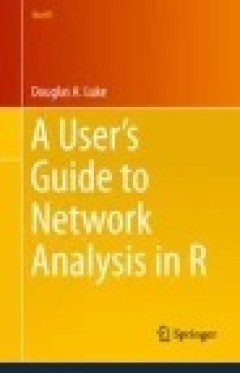
A User’s Guide to Network Analysis in R
Presenting a comprehensive resource for the mastery of network analysis in R, the goal of Network Analysis with R is to introduce modern network analysis techniques in R to social, physical, and health scientists. The mathematical foundations of network analysis are emphasized in an accessible way and readers are guided through the basic steps of network studies: network conceptualization, data…
- Edition
- Ed. 1
- ISBN/ISSN
- 978-3-319-23883-8
- Collation
- XII, 238
- Series Title
- Use R!
- Call Number
- 519.5 LUK u
 Computer Science, Information & General Works
Computer Science, Information & General Works  Philosophy & Psychology
Philosophy & Psychology  Religion
Religion  Social Sciences
Social Sciences  Language
Language  Pure Science
Pure Science  Applied Sciences
Applied Sciences  Art & Recreation
Art & Recreation  Literature
Literature  History & Geography
History & Geography